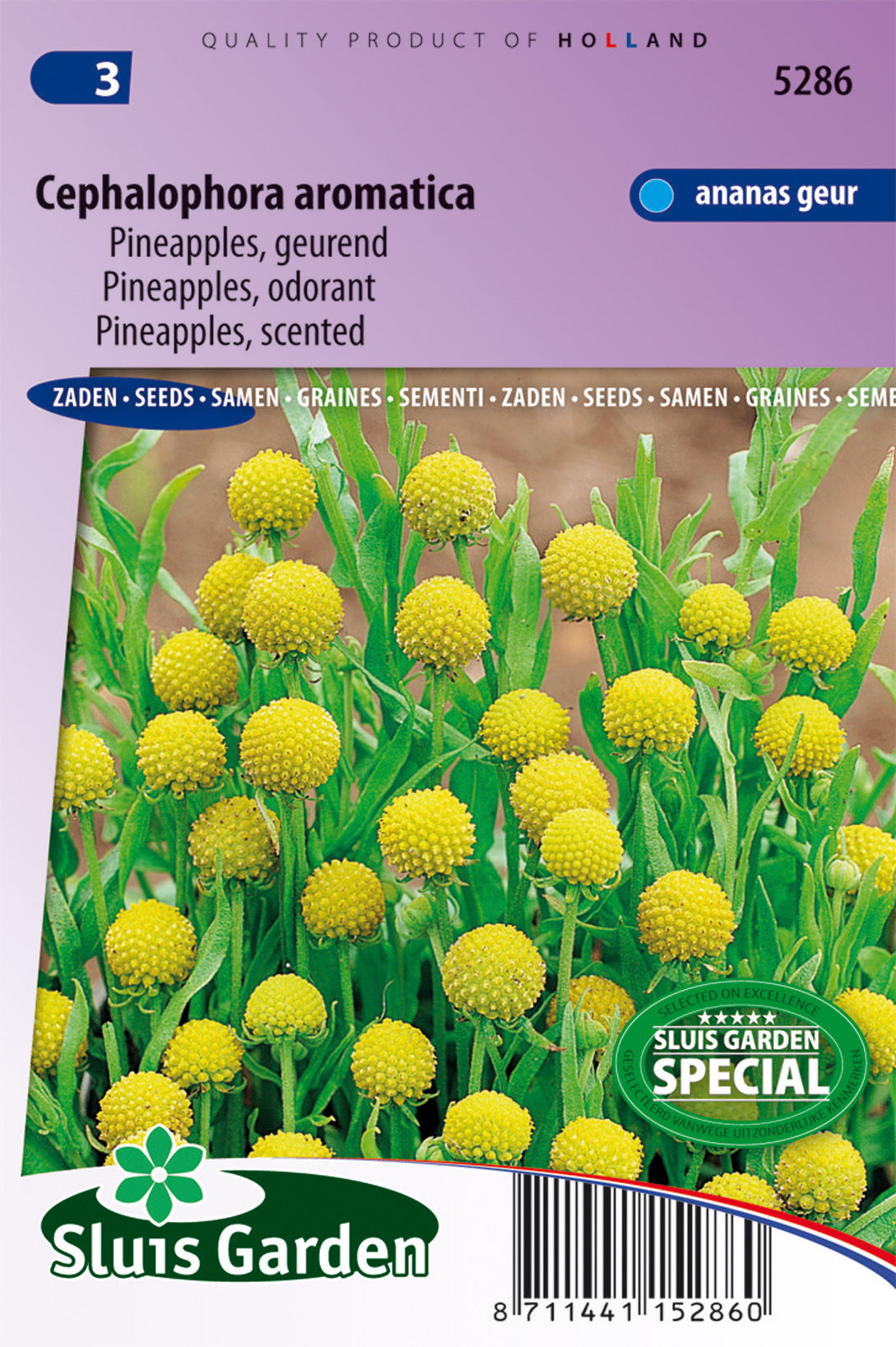1
/
of
1
Cephalophora Aromatica Pineapples de
Cephalophora Aromatica Pineapples de
Regular price
1.350 KWD
Regular price
Sale price
1.350 KWD
Unit price
/
per
Shipping calculated at checkout.
Couldn't load pickup availability
Growing pineapples can be a rewarding experience, and if you're looking for a pineapple variety with a fragrance ("geurend" means scented in Dutch), you might be referring to a specific cultivar. Pineapples are typically grown from the tops of mature fruits, and they thrive in warm, tropical or subtropical climates. Here's a general guide on how to grow pineapples:
**1. Acquiring a Pineapple Top:**
- Purchase a fresh, ripe pineapple from a grocery store.
- Twist off the crown (leafy top) from the pineapple.
**2. Preparing the Pineapple Top:**
- Remove any excess fruit flesh from the bottom of the crown.
- Let the crown air dry for a day or two to allow the cut end to callus.
**3. Planting:**
- Plant the pineapple top in well-draining soil. Pineapples are quite adaptable but prefer sandy, loamy soil.
- You can plant them directly in the ground or in a large pot.
**4. Sunlight:**
- Pineapples thrive in full sunlight. Ensure they receive at least 6 hours of direct sunlight per day.
**5. Watering:**
- Keep the soil consistently moist, but not waterlogged. Pineapples are somewhat drought-tolerant but appreciate regular watering.
**6. Fertilization:**
- Pineapples benefit from regular feeding. Use a balanced, slow-release fertilizer or a fertilizer high in potassium.
**7. Temperature:**
- Pineapples prefer warm temperatures between 65°F to 95°F (18°C to 35°C). They can tolerate brief periods of cooler temperatures but should be protected from frost.
**8. Container Growing:**
- If growing in a container, choose a large pot with good drainage. Use a well-draining potting mix.
**9. Mulching:**
- Mulch around the pineapple to conserve moisture, suppress weeds, and regulate soil temperature.
**10. Care:**
- Remove any pups (suckers) that develop at the base of the plant to encourage the main plant to produce a larger fruit.
**11. Pineapple Harvest:**
- Pineapples take about 18-24 months to mature and produce fruit. The fruit will emit a sweet fragrance when it's ready for harvest.
- Harvest by twisting the fruit from the plant.
**12. Pineapple Propagation:**
- Once harvested, you can use the crown of the pineapple to grow a new plant and continue the cycle.
**13. Disease and Pest Management:**
- Pineapples are relatively resistant to pests and diseases. Keep an eye out for snails, slugs, or aphids and treat any infestations promptly.
**14. Companion Planting:**
- Some gardeners plant companion plants like basil or marigolds to help deter pests.
Keep in mind that if you are referring to a specific cultivar called "Pineapples Geurend," it would be beneficial to seek information about that particular variety or contact the supplier for specific growing details.
**1. Acquiring a Pineapple Top:**
- Purchase a fresh, ripe pineapple from a grocery store.
- Twist off the crown (leafy top) from the pineapple.
**2. Preparing the Pineapple Top:**
- Remove any excess fruit flesh from the bottom of the crown.
- Let the crown air dry for a day or two to allow the cut end to callus.
**3. Planting:**
- Plant the pineapple top in well-draining soil. Pineapples are quite adaptable but prefer sandy, loamy soil.
- You can plant them directly in the ground or in a large pot.
**4. Sunlight:**
- Pineapples thrive in full sunlight. Ensure they receive at least 6 hours of direct sunlight per day.
**5. Watering:**
- Keep the soil consistently moist, but not waterlogged. Pineapples are somewhat drought-tolerant but appreciate regular watering.
**6. Fertilization:**
- Pineapples benefit from regular feeding. Use a balanced, slow-release fertilizer or a fertilizer high in potassium.
**7. Temperature:**
- Pineapples prefer warm temperatures between 65°F to 95°F (18°C to 35°C). They can tolerate brief periods of cooler temperatures but should be protected from frost.
**8. Container Growing:**
- If growing in a container, choose a large pot with good drainage. Use a well-draining potting mix.
**9. Mulching:**
- Mulch around the pineapple to conserve moisture, suppress weeds, and regulate soil temperature.
**10. Care:**
- Remove any pups (suckers) that develop at the base of the plant to encourage the main plant to produce a larger fruit.
**11. Pineapple Harvest:**
- Pineapples take about 18-24 months to mature and produce fruit. The fruit will emit a sweet fragrance when it's ready for harvest.
- Harvest by twisting the fruit from the plant.
**12. Pineapple Propagation:**
- Once harvested, you can use the crown of the pineapple to grow a new plant and continue the cycle.
**13. Disease and Pest Management:**
- Pineapples are relatively resistant to pests and diseases. Keep an eye out for snails, slugs, or aphids and treat any infestations promptly.
**14. Companion Planting:**
- Some gardeners plant companion plants like basil or marigolds to help deter pests.
Keep in mind that if you are referring to a specific cultivar called "Pineapples Geurend," it would be beneficial to seek information about that particular variety or contact the supplier for specific growing details.
Share

